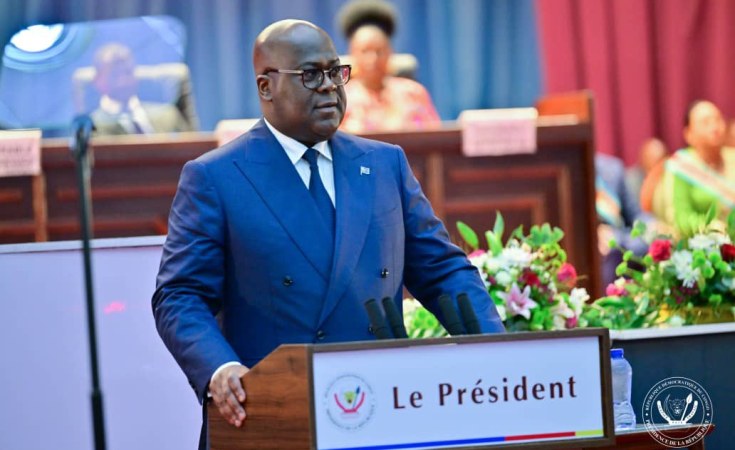Attempts to change the constitution of the Democratic Republic of Congo only exacerbate existing citizen distrust in government.
The people of the Democratic Republic of Congo (DRC) bear heavy burdens. Their resource-rich country is one of the five poorest in the world. Profound insecurity characterizes the country's east, where scores of armed groups operate, millions have been displaced, and the threat of interstate war persists. Over twenty-three million Congolese are food insecure. The country is the epicenter of a deadly Mpox outbreak.
The president of the DRC, Felix Tshisekedi, has made little progress on the most pressing issues confronting Congolese citizens since ascending to office under highly irregular circumstances in 2018. But in the wake of his re-election in the flawed elections of 2023, he has identified a new priority: changing the constitution. Calling the country's current constitution, which was approved by referendum in 2005, "outdated," and suggesting that it was imposed on the country by outsiders, he has announced plans to establish a national commission charged with drafting a new constitution next year.
Many Congolese believe that this newfound interest in constitutional reform is really about changing the presidential term limits, or at least resetting the clock on those limits, before the end of what should be Tshisekedi's final term.
Ironically, Tshisekedi's predecessor, Joseph Kabila, also tried to extend his time at the top, flirting with a constitutional change and ultimately opting to stay in office for two years past the expiration of his mandate. Kabila's resulting political unpopularity, which directly led to Tshisekedi attaining the country's highest office, seems to have been forgotten by the current president, who also appears oblivious to the voluminous data indicating that efforts to evade term limits and coups d'etat in the region are "two sides of the same coin."
This is just the kind of self-serving political distraction that the Democratic Republic of Congo does not need. But with major global powers competing for access to Congo's mineral wealth, Tshisekedi may not feel much international pressure to change course. Instead, he may find that his foreign suitors are happy to ignore his political shenanigans, and to disregard the inherent risks of investing in a country in which the population is seething with discontent.
That would only add to the long history of external actors contributing to the country's instability and enriching themselves at great cost to the Congolese people.


